
Key points
• Send your invitations 6-8 weeks before the wedding. This gives guests enough time to plan but not so much time they forget. A 7-week mark can also work perfectly.
• For destination weddings prepare mail invitations at least three months ahead. Guests need extra time to book flights and hotels.
• Don’t forget to set an RSVP deadline about 3-4 weeks before your big day. This gives ample time to follow up with missing responses before finalizing headcounts with vendors.
Contents
- 1 Key points
- 2 Understanding Wedding Invitation Timelines
- 3 Importance of Timely Invitations
- 4 Factors Influencing Invitation Timing
- 5 General Guidelines for Sending Invitations
- 6 Domestic vs. Destination Weddings
- 7 Seasonal Considerations
- 8 Detailed Timeline for Sending Invitations
- 9 Adjustments for Special Circumstances
- 10 Expert Advice on Invitation Etiquette
- 11 Consulting Wedding Planners
- 12 Incorporating Cultural and Traditional Elements
- 13 Frequently Asked Questions (FAQ)
Understanding Wedding Invitation Timelines
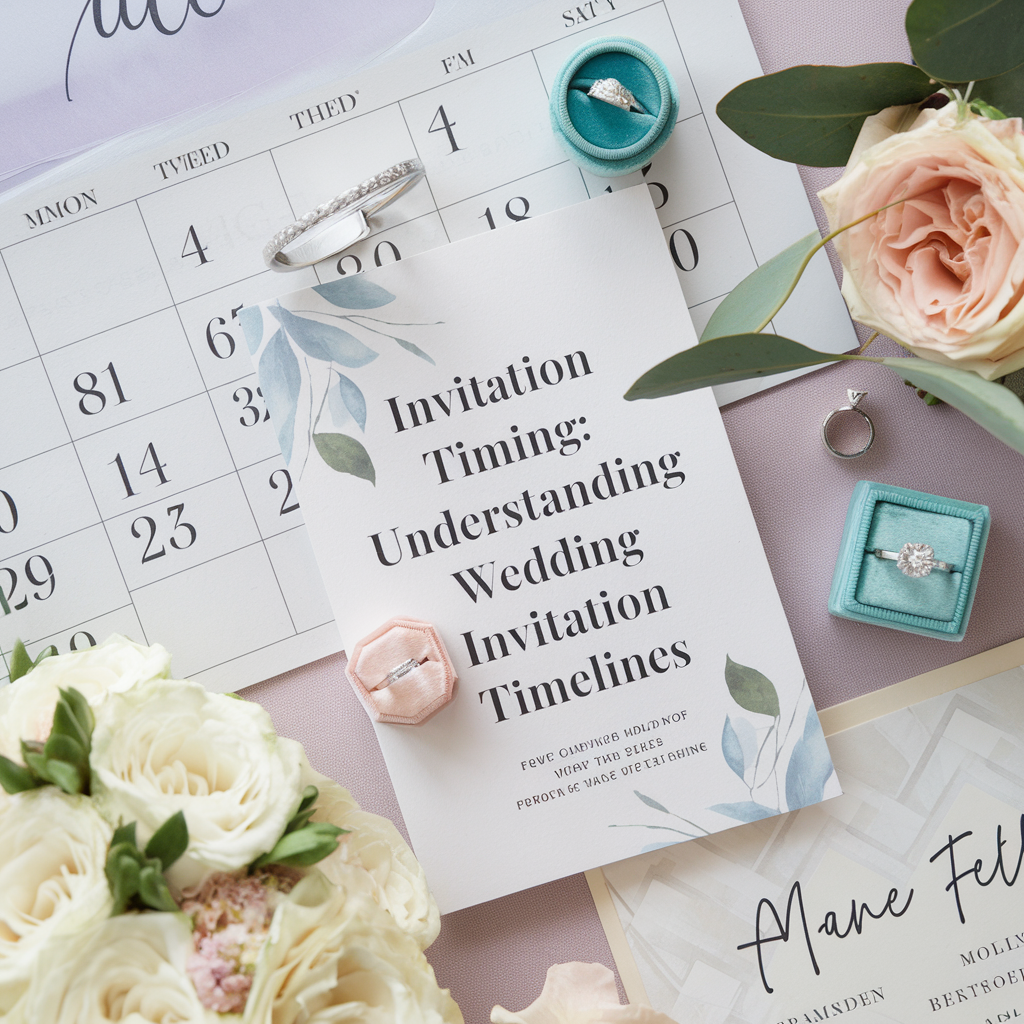
Planning a wedding is a big job so sending invitations on time is a key step.
Wedding invitations should be mailed 6-8 weeks before the wedding to give guests time to plan and respond.
Set a clear RSVP deadline and ask guests to respond in 2-3 weeks. This helps in having sufficient time to make the final counts for the venue and caterer.
Destination weddings have some tweaks to their rules. It is better to send the invites with a buffer of 3 months to give everyone time to book flights and look for hotels.
Importance of Timely Invitations
Why does timing matter so much?
- It shows respect for your guests. People are busy and need time to organize work, arrange babysitters, and book travel.
- Late invitations can lead to fewer guests – it will lead to schedule issues.
- Sending out the invitations promptly means you will be able to concentrate on other wedding tasks as D-day nears. No one wants to chase down RSVP’s a week before the wedding.
Factors Influencing Invitation Timing
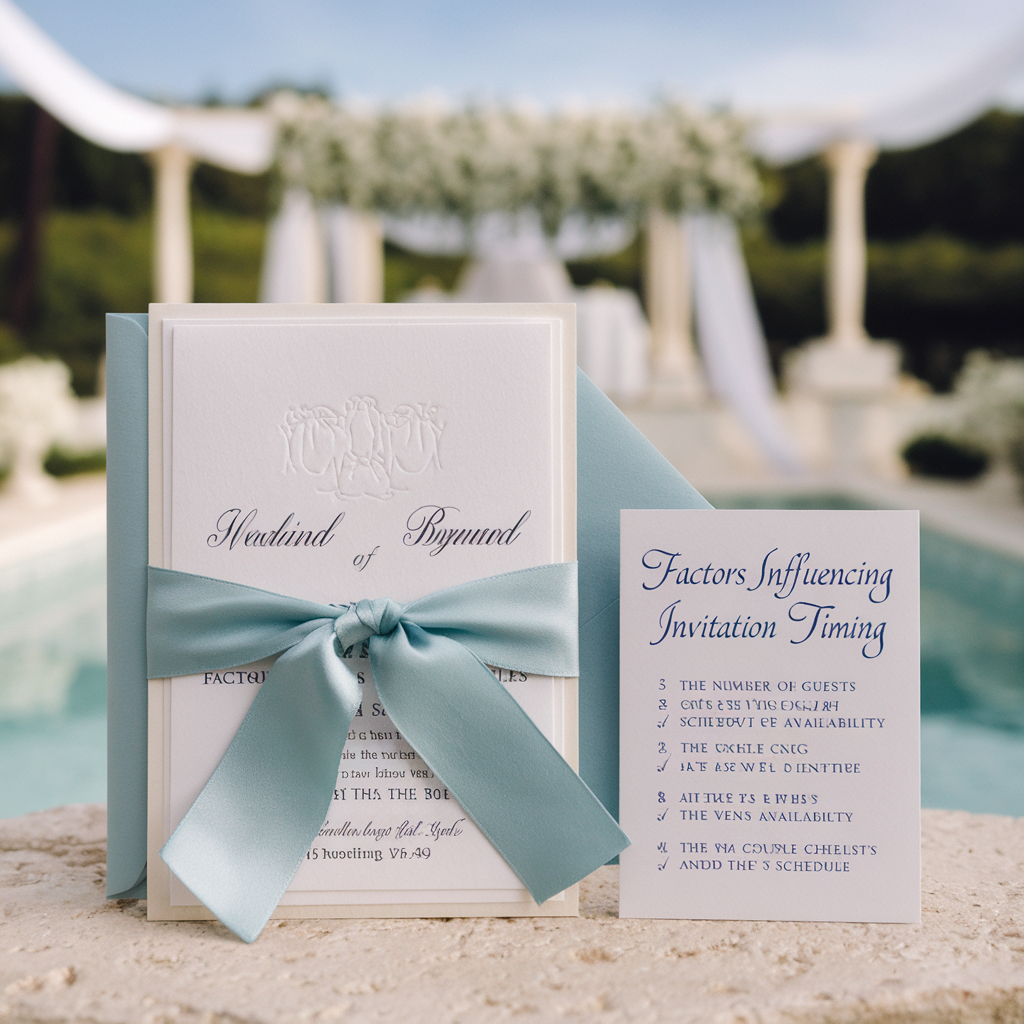
There are many things which might affect the sending of. Some of them are:
Wedding Type
Local weddings can follow the standard 6-8 week rule. For a destination wedding is recommended to have an invitation sent out earlier. Getting married on or around a holiday weekend should have an extra 2 weeks in the wedding timeline.
Guest List Factors
Many guests coming out of town? Give them notice at least a few months earlier so they can plan on the hotel and travel.
Save-the-Dates
Issuing save-the-date cards at least 6-8 months before gives more leeway with formal invitations. Guests already know about the wedding so you’ll just inform them about the details.
Remember that rules aren’t strict rules. What matters to guests is having enough time to plan.
General Guidelines for Sending Invitations
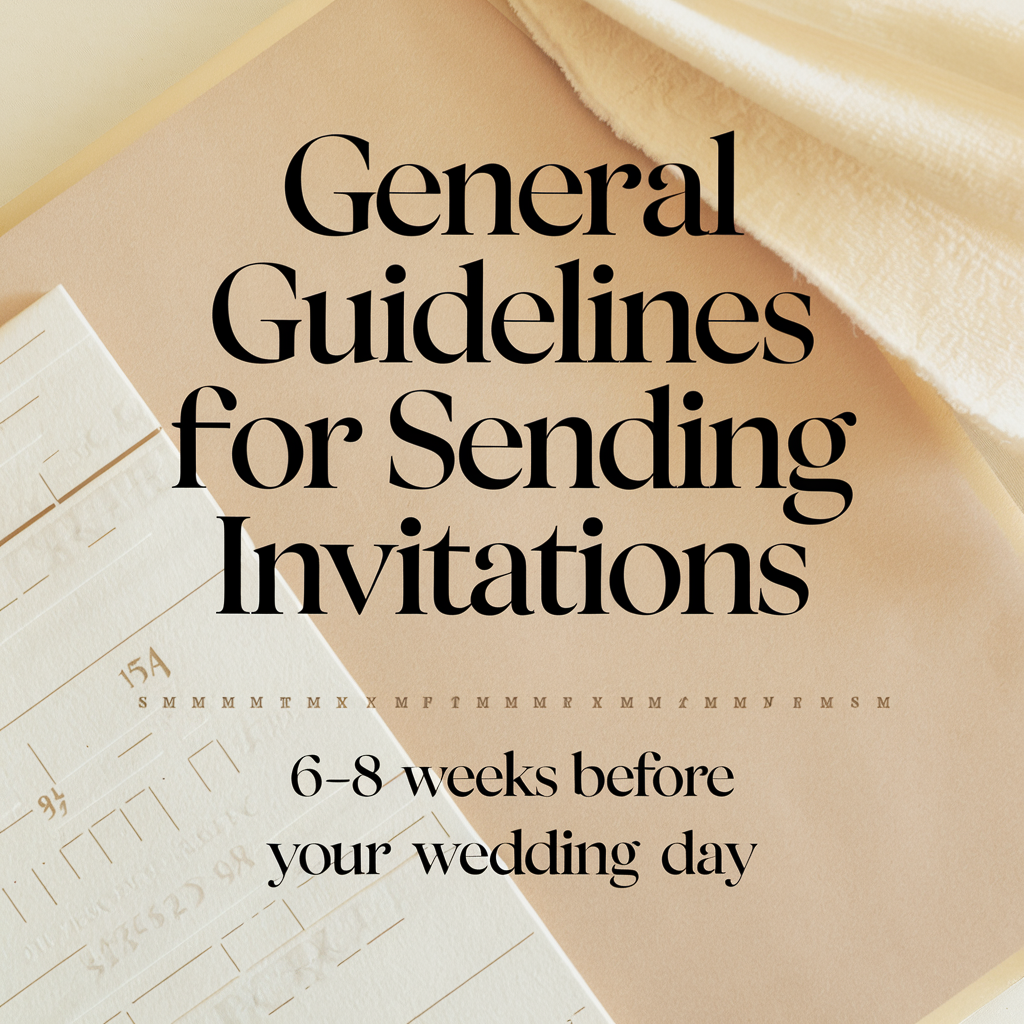
The same question always comes up: “When should we mail our invites?” The short answer is 6-8 weeks before your wedding day. This timing works best for most couples
A 2022 poll from The Knot shows that 78% of couples send their invitations during this window to provide enough time for guests to plan but not enough time for them to forget.
Want your guests to RSVP? Set a deadline about 2-3 weeks before the wedding to give you sufficient time to follow up with guest responses and finalize all details with your vendors. The caterer will need a final headcount in creating the seating chart.
Don’t forget to order your invitations early. Designers usually require 2-3 weeks to print/edit.
Domestic vs. Destination Weddings
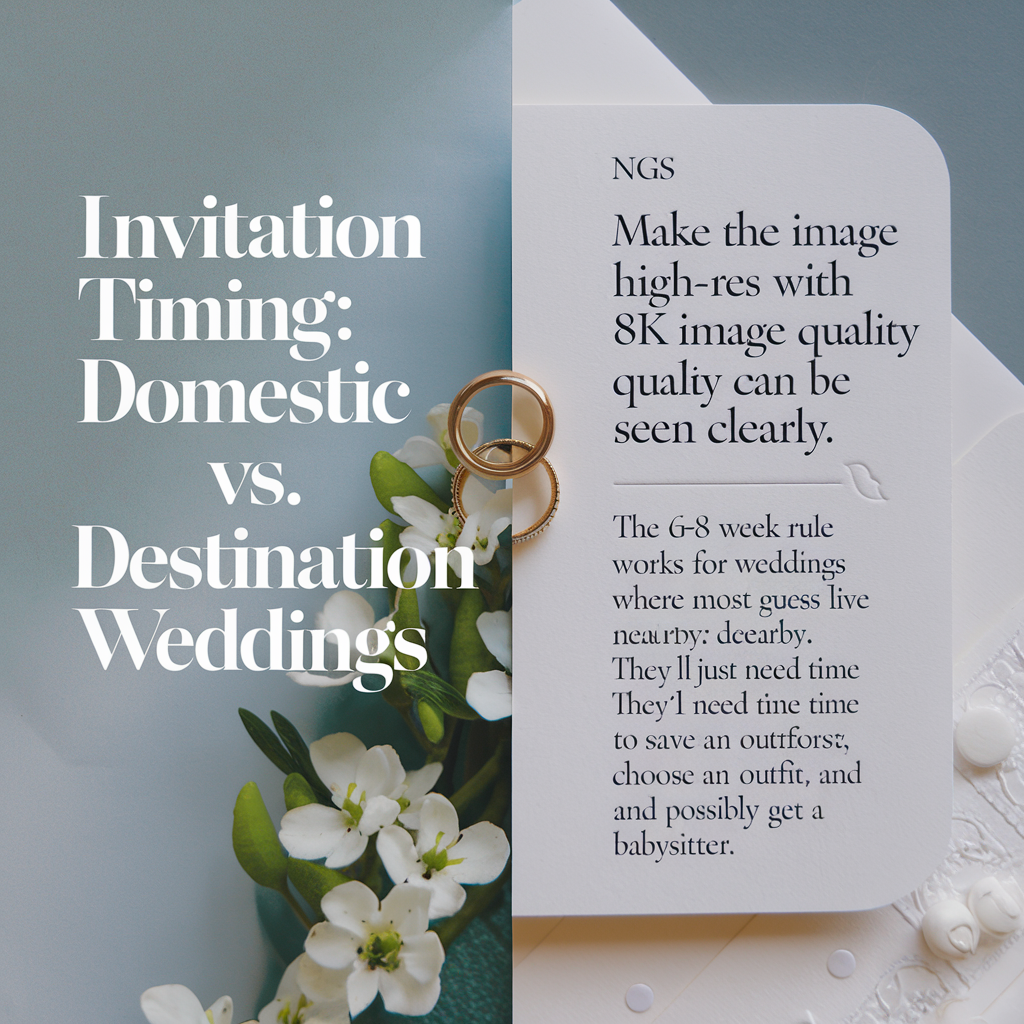
The 6-8 week rule works for weddings where most guests live nearby. They’ll just need time to save the date, choose an outfit, and possibly get a babysitter.
For Destination Weddings
Planning to say “I do” on a beach far away? Send an invitation earlier. Mail them 3-4 months before the wedding date and give extra notice.
Guests will need time to:
- Request time off work
- Book flights and hotels
- Budget for the trip
- Get passports if needed
Seasonal Considerations
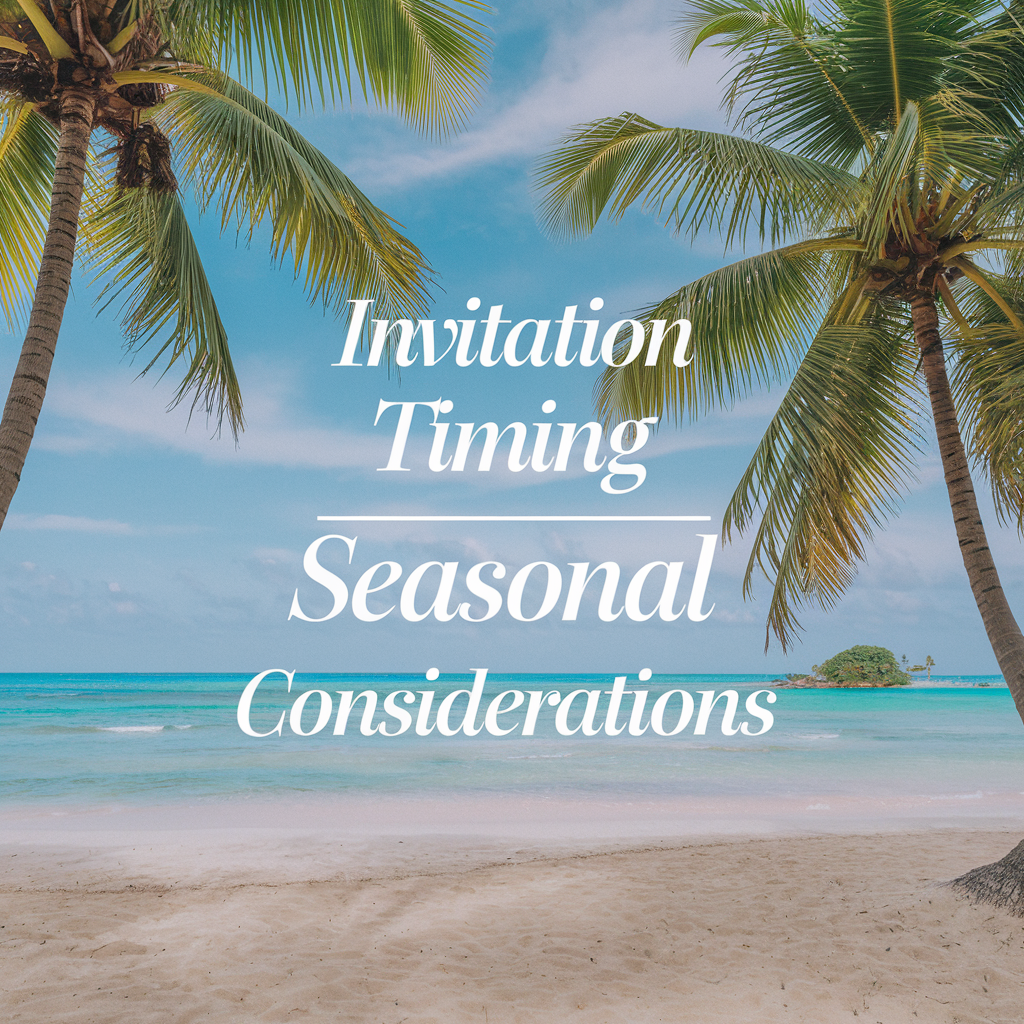
Summer is peak wedding season.
Many people go on vacation during this time so send your invites at least 8 weeks earlier. If your wedding is on a holiday weekend like July 4th or Labor Day—add another 2 weeks to that.
Holiday Season Weddings
Do you want to plan a wedding in December? Send those invitations 10-12 weeks in advance People make plans early and you want your wedding “on their calendar” first.
Wedding During Busy Times
It’s graduation season (May-June) or back-to-school season (August-September)? Families with students might have conflicts so send out invites earlier in the timeline to help folks plan ahead and avoid conflicts.
Weather can also affect timing. A wedding in a snowy place or takes place in winter needs an earlier invite as guests may have to plan carefully or there may be travel delays.
Detailed Timeline for Sending Invitations
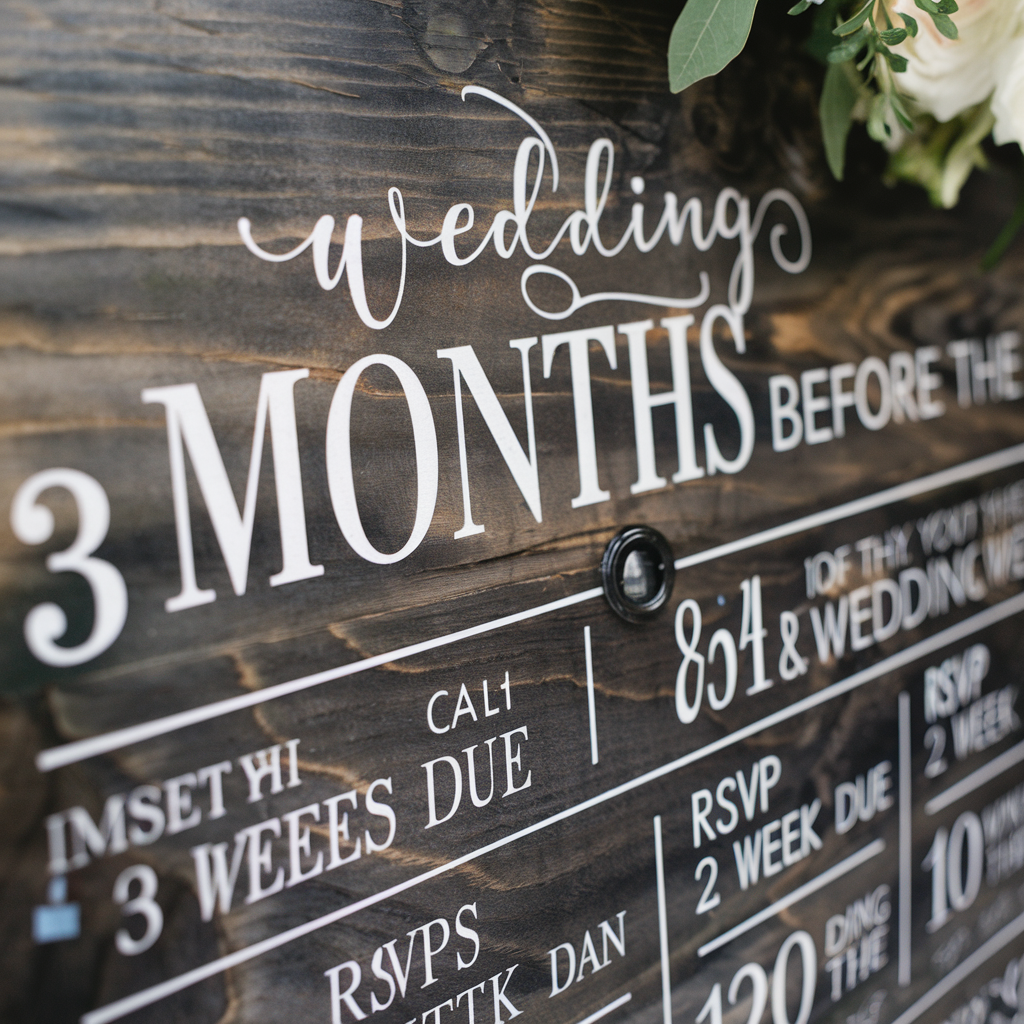
The timing of sending out invitations makes a lot of difference. Most couples will want to send invitations 6-8 weeks out. Try to send these out 3 months before the wedding so that your mates have time to plan their travel.
A Knot survey found that 80% of couples whose invitations were sent at this time frame got better RSVP rates.
The timeline might look like this:
- Mail your save-the-dates around eight months to ten months before the wedding.
- Invitations for destination weddings are to be mailed 3 months before.
- Send invites for local weddings 6-8 weeks before.
- Set RSVP deadline: 3-4 weeks before
- Check with guests who haven’t RSVP 2-3 weeks before.
Save-the-Dates: Initial Announcements
Think of save-the-dates as a heads-up for your guests. Send these 8-10 months before your wedding day. Destination weddings might want to be sent earlier like about a year in advance.
What to include on save-the-date:
- Couple’s names
- Wedding date
- City and state
- Formal Invitation
Formal Invitations: Main Mailing
Save-the-date eludes guests if there isn’t a clear “a formal invitation to follow” note. Mail them at least 8 to 6 weeks before and about 3 months before destination weddings.
What belongs in your invitation suite:
- Date, time, and venue
- A card to confirm attendance.
- Reception details
- Travel and hotel information
- Wedding website info
RSVP Deadlines: Ensuring Responses
Make your RSVP deadline 3-4 weeks away from the wedding date. This allows you to reach out to non-respondents and gives your vendors the final headcount.
Tips for better RSVP rates:
- Let them RSVP easily (cards or online option).
- Make the deadline date clear.
- Don’t forget to put on postage.
- As the date approaches – send them reminders
Adjustments for Special Circumstances
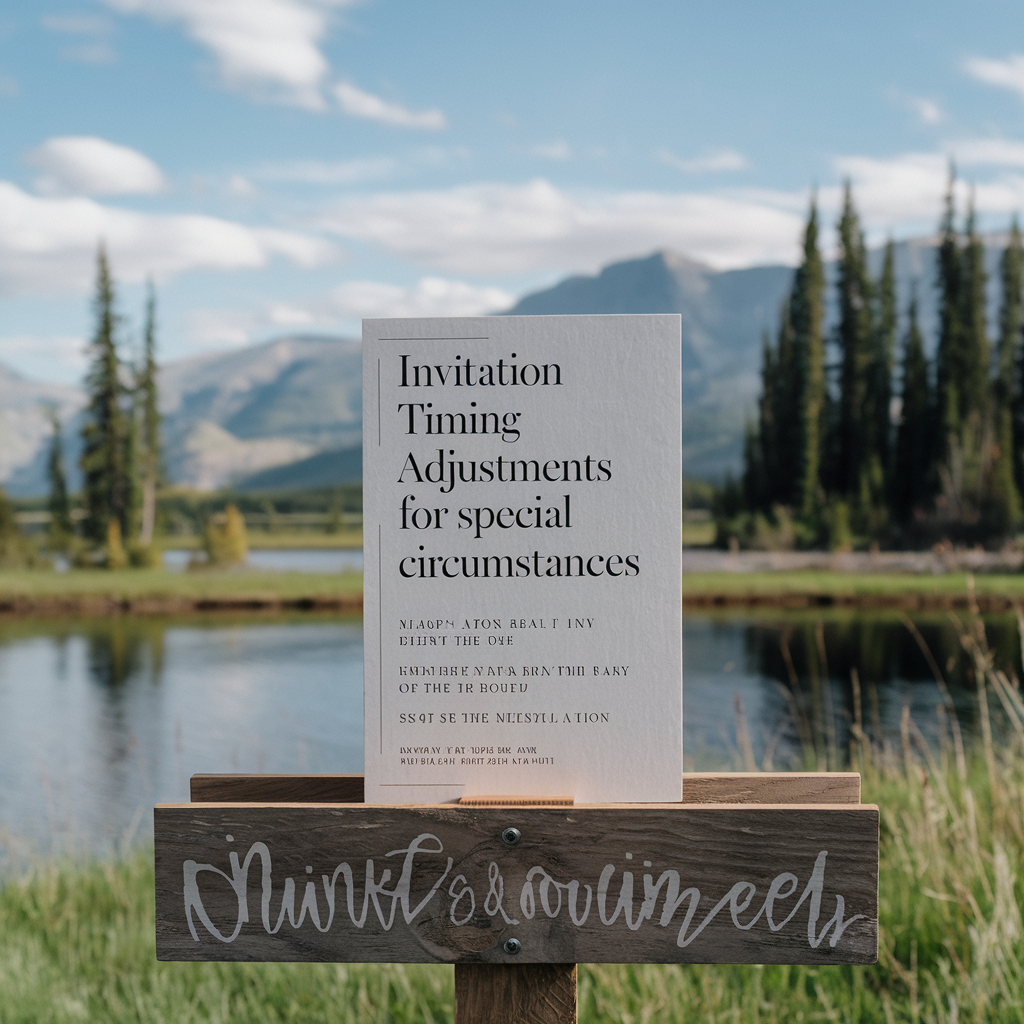
Wedding rules are not strict and steady. You can bend those “6-8 weeks before” rules as you sees fit.
Last-Minute Weddings
Getting married soon? Don’t panic.
Quick weddings need to move fast and send invites faster. Get them out there as soon as possible—preferably 3-4 weeks prior date to the event. Digital invites work wonders here.
Tips for last-minute invites:
- Send out your invites through email or wedding websites for fast delivery.
- Let your guests know they can RSVP by calling or texting.
- Be clear about the short timeline.
- Give your key guests a personal call.
Holiday and Weekend Weddings
Planning a wedding on a holiday or long weekend? Go the extra time. Send out invites 10-12 weeks in advance instead of 6-8 weeks and encourage guests to block the date on their calendars early to ensure they don’t miss out.
When to send invites for special dates:
- Get Christmas/New Year invitations at least 12 weeks before.
- Thanksgiving invites should go out 10-12 weeks before the date.
- Memorial Day/Labor Day: 10 weeks prior.
- July 4th: 10 to 12 weeks is recommended.
- Destination wedding: finalize the date 4-6 months before the trip.
Expert Advice on Invitation Etiquette
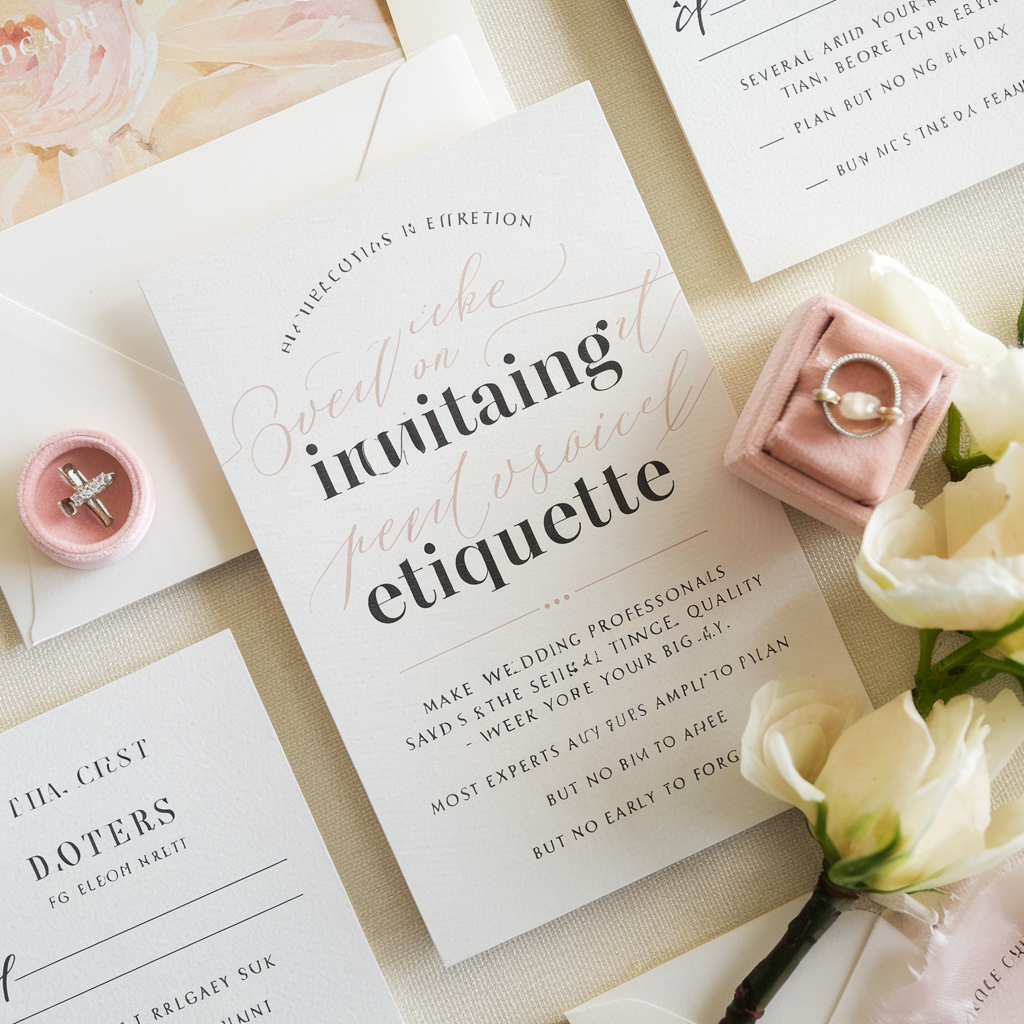
Several wedding professionals said the same thing – timing matters a lot. Most experts advise six to eight weeks before your big day to give guests ample time to plan but not too early to forget.
Quick Tips for Perfect Timing
- Mail local wedding invites: 6-8 weeks before
- Mailing: at least 12 weeks before
- Destination wedding: Post 12 weeks before
- RSVP date should be at least 2-3 weeks before
Consulting Wedding Planners

Wedding planners are knowledgeable about when invitations should be sent out. They can also create a personalized timeline for the special wedding celebration. They also suggest going in reverse from the wedding date.
A good planner will also remind you about often-forgotten items. Here are some of them:
- Save-the-dates: 8-10 months before
- Rehearsal dinner invites
- Welcome party details
- Sunday brunch cards
Incorporating Cultural and Traditional Elements

Wedding invitations can showcase culture and traditions.
Indian traditions have families deliver invitations with sweets. Jewish weddings may have Hebrew and English texts. Chinese wedding invites usually feature a lot of red and gold for good luck.
Adding cultural touches requires timing and shift too. A big wedding with a lot of activities will occur over several days and you’ll need to send out invites a bit sooner – commonly 3-4 months before.
Remember that blending traditions takes time. Let your guests know what to expect while sharing your unique cultural background.
Frequently Asked Questions (FAQ)
How does Myka Meier suggest handling wedding invitation etiquette for children?
Guest count and venue often influence this decision. Many of them need advance notice for childcare arrangements so clarity in your invitation suite to prevent awkward conversations later.
What's the First Look approach to handling RSVPs from stragglers?
Most people simply forget in their busy calendars so a personal touch works better than formal correspondence for collecting those final RSVPs.
How can couples use Spring Fling 40 to enhance their wedding invitation process?
This creates a comprehensive solution where guests can find everything from your wedding registry to accommodation info and travel arrangements. The combination of digital and paper invitation elements gives wedding enthusiasts the best of both worlds—traditional etiquette and modern convenience.
What advice does John Smith give about destination wedding invitation timing?
This extended timeline allows guests to book travel arrangements, secure lodging, and request time off work. The location matters significantly with destination weddings as guests need plenty of notice to plan their travel to your special event.

I am an award-winning author who has deep insights into the world of dating & relationships. I have won several awards including Andromeda Magazine – Fantasy Short Fiction Story award amongst several other awards and writing achievements.